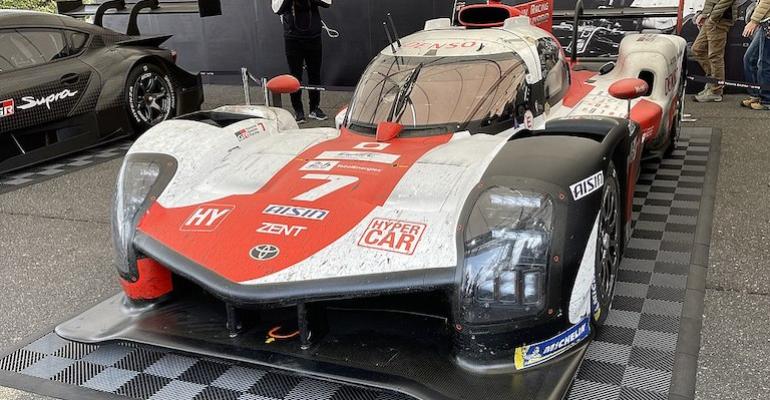The prologue of the WEC series ahead of the first race in Qatar on 2 March was pushed back after the teams’ cars and equipment freighted from Europe to the Middle East on a specially chartered vessel was delayed. The delay in arrival was caused by rerouting of the vessel via the Cape of Good Hope rather than transiting via the Suez Canal to avoid the threat of attack by Houthi rebels in the Red Sea.
To ensure the cars and equipment arrive in Imola, Italy on 21 April in time for the second race of the season the WEC organisation is reported to have switched to air freight rather than risk delays using ocean shipping.
A statement by the WEC said: “Due to the ongoing geopolitical situation in the Red Sea, it was concluded that the safest option was for the teams’ freight to return by air rather than by sea.
“This was the only viable solution which would guarantee the safety of the WEC’s freight, as well as everything arriving on time for Imola.”
According publication Motorsport the switch to air freight will come at considerable cost for the motor racing teams and reported one competitor as saying it was facing over £250,000 in extra costs as a result.
The WEC season of eight races spans Asia, Europe, the Middle East, and the Americas, and includes the classic Le Mans 24 hour race.
Copyright © 2024. All rights reserved. Seatrade, a trading name of Informa Markets (UK) Limited.
Add Seatrade Maritime News to your Google News feed.  |

